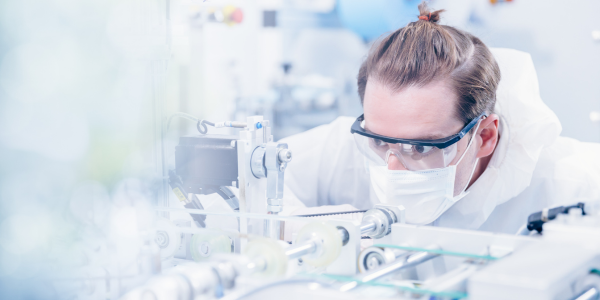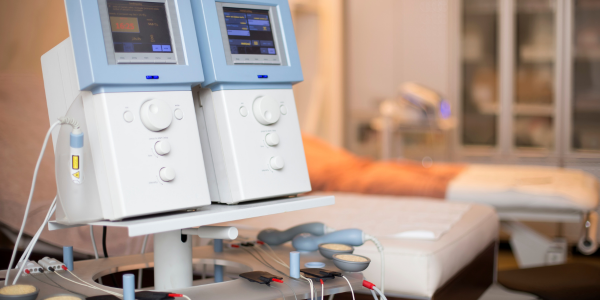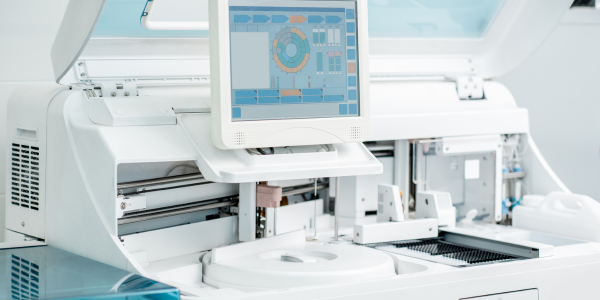The journey of medical innovation is often marked by groundbreaking discoveries that change the course of treatment and patient care. In the realm of gastrointestinal health, the Eclipse XL1 stands as a shining example of such progress. Revolutionizing the treatment of Short Bowel Syndrome (SBS), the Eclipse XL1 is not just a technological marvel; it is a beacon of hope for countless individuals grappling with this challenging condition. By leveraging advanced scientific research and engineering, the Eclipse XL1 opens a new chapter in the management of SBS, offering possibilities that were once thought unattainable.
The Complex World of Short Bowel Syndrome
Short Bowel Syndrome is a condition characterized by a significant reduction in the functional length of the small intestine. This often results from surgical removal of large sections of the intestine due to various medical conditions such as Crohn’s disease, ischemic injuries, or congenital defects.
The Impact of SBS on Health and Lifestyle
SBS can have a profound impact on a person’s health and lifestyle. The reduced ability to absorb nutrients often leads to malnutrition, weight loss, and a host of other complications. Patients with SBS may experience a range of symptoms, including diarrhea, fatigue, and dehydration, severely affecting their quality of life.
Current Understanding and Treatment Approaches
Traditionally, the management of SBS has focused on symptom control and nutritional support. This often involves specialized diets, supplementation with vitamins and minerals, and sometimes the need for parenteral nutrition. However, these methods, while necessary, do not address the underlying issue of reduced intestinal surface area.

A New Dawn with the Eclipse XL1
The Eclipse XL1 emerges as a revolutionary solution in this landscape. Developed by experts in the field of SBS, this device signifies a major leap forward in treatment methodology.
The Science Behind the Eclipse XL1
At its core, the Eclipse XL1 is about fostering tissue regeneration. It utilizes a mechanical approach to stimulate the growth of intestinal tissue. This innovative technology aims to extend the intestinal length significantly, potentially transforming the treatment paradigm for SBS.
The Promise of Tissue Regeneration Therapy
The concept of tissue regeneration therapy is at the forefront of medical science, and the Eclipse XL1 embodies this cutting-edge approach. By enabling the growth of new, healthy intestinal tissue, the device holds the potential to reduce the dependence on lifelong parenteral nutrition and improve the overall quality of life for patients.
This expanded introduction and first section provide a more comprehensive look into Short Bowel Syndrome and introduce the Eclipse XL1 with the necessary SEO elements to ensure the blog is informative, engaging, and searchable.
Revolutionizing SBS Treatment with the Eclipse XL1
The Eclipse XL1 is not just a new treatment option; it represents a paradigm shift in the management of Short Bowel Syndrome. Its development is a testament to the power of innovation in addressing complex medical challenges.

A Leap Forward in Intestinal Tissue Regeneration
The core principle of the Eclipse XL1 revolves around the regeneration of intestinal tissue. By mechanically stimulating the growth of the small intestine, this device aims to increase the absorptive surface area, a critical factor in the management of SBS. This approach offers a significant advancement over traditional treatments that primarily focus on symptom management.
Early Results and Future Prospects
While still in the early stages of implementation, the Eclipse XL1 has shown promising results in initial studies. Patients treated with this technology have exhibited growth in intestinal tissue, which is a crucial step towards reducing dependency on parenteral nutrition and improving nutrient absorption. As research continues, the full potential of the Eclipse XL1 in changing the SBS treatment landscape becomes increasingly apparent.
Pioneering Research in Short Bowel Syndrome
The development of the Eclipse XL1 underscores the importance of ongoing research and innovation in the field of SBS. Continuous scientific inquiry is the backbone of progress in understanding and treating this complex condition.
Collaborative Efforts in Medical Science
The advancement of treatments like the Eclipse XL1 is a result of collaborative efforts across various disciplines, including gastroenterology, surgery, and biomedical engineering. This interdisciplinary approach is crucial for holistic treatment development, combining insights from different fields to create comprehensive solutions.
The Future of SBS Management
Looking ahead, the role of research and development in SBS treatment is more critical than ever. As we gain deeper insights into intestinal regeneration and other related areas, the possibility of developing personalized and more effective treatments for SBS becomes a tangible reality. The Eclipse XL1 is at the forefront of these developments, offering a glimpse into a future where SBS can be managed more effectively and less invasively.
The Importance of Patient-Centric Care in SBS
In the evolution of SBS treatment, the shift towards patient-centric care has become increasingly important. The Eclipse XL1 exemplifies this approach, focusing not just on treating the condition but also on enhancing the overall quality of life for patients.

Understanding Patient Needs and Challenges
A key aspect of patient-centric care is understanding the daily challenges and needs of SBS patients. This involves considering the physical, emotional, and social impacts of the condition, and developing treatments that address these multifaceted needs.
The Role of the Eclipse XL1 in Patient Empowerment
The Eclipse XL1 offers a new level of empowerment for SBS patients. By potentially reducing the need for ongoing parenteral nutrition and frequent medical interventions, it enables greater independence and control over their health management. This shift not only improves physical health outcomes but also contributes positively to patients’ mental and emotional well-being.
The Evolving Landscape of Short Bowel Syndrome Management
As we look towards the future of SBS treatment, it’s clear that the landscape is evolving rapidly. With advancements like the Eclipse XL1 leading the way, the potential for more effective and less invasive treatments is on the horizon.
The Promise of Continued Innovation
The ongoing research and development in the field of SBS hold great promise. Innovations in areas such as genetics, microbiome research, and advanced surgical techniques are likely to further enhance our ability to treat and manage SBS effectively.
The Eclipse XL1 – A Beacon of Hope
The Eclipse XL1 stands as a beacon of hope in this evolving landscape. It represents not just a significant technological achievement, but also a commitment to improving the lives of those affected by SBS. As we continue to push the boundaries of medical science, the Eclipse XL1 will undoubtedly play a pivotal role in shaping the future of SBS treatment.
Embracing the Future with Optimism
As we navigate the complexities of Short Bowel Syndrome, the introduction of the Eclipse XL1 marks a significant milestone. This innovative approach is not just a testament to the strides we’ve made in medical technology but also a beacon of hope for those affected by SBS. It signifies a future where treatment goes beyond managing symptoms, offering a pathway to improved quality of life.
The Role of Continued Dialogue and Education
Education and awareness remain key in understanding and managing SBS. By staying informed about the latest developments and engaging in ongoing dialogue, patients, families, and healthcare professionals can together navigate this challenging landscape more effectively.
Join the Conversation
We invite you to join this evolving conversation about Short Bowel Syndrome and its treatments. Stay informed about the latest advancements, share your experiences, and engage with a community committed to improving SBS care. Whether you’re a healthcare professional, a patient, or simply someone interested in medical innovation, your voice is a valuable part of this journey.
Stay Connected and Informed
- To learn more about Short Bowel Syndrome and the latest research, visit the Short Bowel Syndrome Foundation.
- For detailed medical information and treatment guidelines, the American Gastroenterological Association offers valuable resources.
- Explore ongoing clinical trials and research studies at ClinicalTrials.gov.
As we look to the future, the role of innovative treatments like the Eclipse XL1 in enhancing SBS care is undeniably promising. It’s a journey that requires collaboration, research, and most importantly, hope. Together, let’s embrace this new chapter in the treatment of Short Bowel Syndrome.




